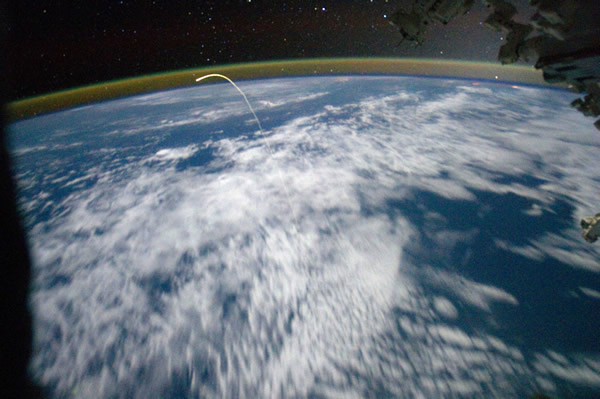With the safe return of the Space Shuttle Atlantis, American ability to put astronauts into space come to an end—50 years after Alan Shepard piloted Freedom 7 into the heavens and became the first American to enter outer space.
Later this year, China will remind the world that it remains committed to what the United States no longer seems interested in—being able to put a man in space. The Chinese are expected to place the Tiangong–1, resembling the U.S. Skylab or the Soviet Salyut space labs, into orbit sometime later this summer or this fall. The Chinese will also launch an unmanned version of their Shenzhou space capsule to engage in unmanned docking maneuvers with the Tiangong, while preparing for manned missions in 2012 or 2013.
Meanwhile, China also continues its Chang’e lunar exploration program. With the successful launch of two orbiters, China has now had a chance to examine the moon for the best place to land a lunar rover, currently scheduled for 2013, and eventually a lunar sample retrieval mission, which is expected by 2017. Once that milestone is achieved, China will have completed the two main preparatory steps toward a manned lunar mission, most likely in the 2025 timeframe.
Some would argue that none of this matters. The U.S. put a man in space in 1961. China’s first manned mission, Shenzhou V, was launched in 2003. The U.S. put a man on the moon on July 20, 1969. China will merely be following in American footsteps.
Yet the psychological impact of China’s landing a man on the moon will be enormous for three audiences:
- In China. A Chinese manned mission to the moon will show China (and the world) that the past 200 years or so, when China has consistently been weak and exploited, were an aberration. China will have returned to the center of the global stage, to its proper role as the Middle Kingdom. And it will have been the Chinese Communist Party (CCP) that achieved this.
- In global opinion. Too many Americans dismiss American exceptionalism, equating it with jingoism. Yet, the United States is exceptional—consider how many people risk their lives to emigrate here. If China is able to put a man on the moon while the United States is unable to replicate its past achievement, we can assuage ourselves with the argument that “we did it decades ago,” but that may not be the perception abroad. For many, it may well suggest that the United States is indeed in decline, that it is no longer in a position to lead—and conversely, that China is.
- In the United States. Some believe in leadership from behind, or even that the United States, with its flaws and weaknesses, is not really suited for leadership. But for most Americans, the United States remains special, and the achievement of placing a man on the moon embodied that exceptionalism. How often have we heard the phrase, “We put a man on the moon,” in response to challenges ranging from curing AIDS to fighting (and winning) the Cold War? The implication is clear—the United States can do anything it sets its mind to it. How will this determination be affected when China lands on the moon, if the United States is unable to respond? What will be the impact on American politics, and will the President at the time be seen as the one who “lost” the moon?
If the United States is not in a position to compete with the People’s Republic of China, it will be a rather different world the morning after China plants its flag in the lunar soil.































